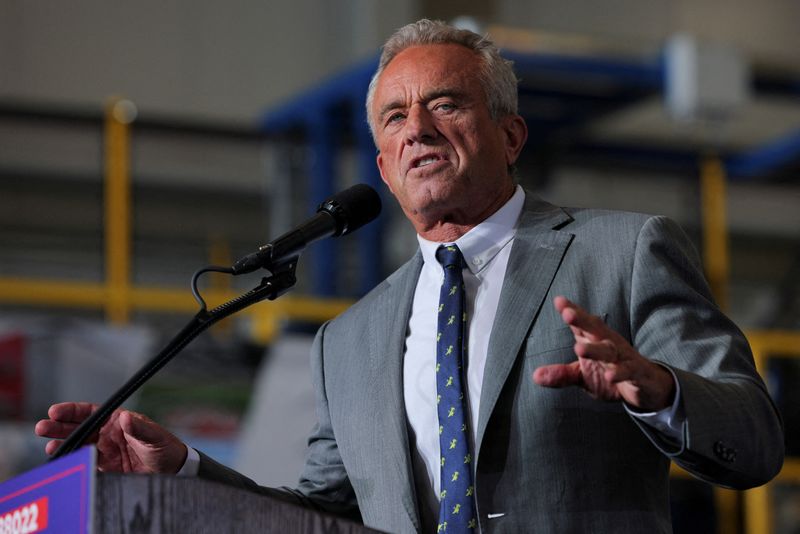(Reuters) – Robert F. Kennedy Jr. asked the U.S. Supreme Court on Friday to strip his name from the ballot in Michigan, once again pressing the nation’s highest judicial body to intervene in his fights to stay on the ballot in some states while dropping off others.
Lawyers for the former independent presidential candidate filed an emergency request for an order requiring Michigan Secretary of State Jocelyn Benson to remove him from the ballot for the upcoming Nov. 5 presidential election. Kennedy suspended his campaign in August and endorsed Donald Trump.
It is Kennedy’s third trip to the Supreme Court opposing state officials’ ballot decisions. On Wednesday he similarly asked the court to remove his name from the ballot in Wisconsin. In September, the Supreme Court rejected his bid to be restored to the ballot in New York.
When Kennedy suspended his campaign, he pledged to withdraw in the most closely contested states, but remain on the ballot elsewhere. Kennedy has since urged his supporters everywhere to back Trump and has withdrawn from the ballot in a number of Republican-leaning states.
Benson rejected Kennedy’s requests to withdraw, prompting him to sue in state court. The Michigan Supreme Court ruled against him in September.
He then sued in federal court, but the Cincinnati, Ohio- based 6th U.S. Circuit Court of Appeals likewise sided with Benson on Sept. 27. With the ballots printed, Kennedy “does not explain how to unring the bell at this juncture without great harm to voting rights and the public’s interest in fair and efficient election administration,” the 6th Circuit said in its opinion.

In Friday’s filing, Kennedy’s lawyers said Benson’s action keeping him on the ballot infringes on his right to free speech under the U.S. Constitution’s First Amendment, and “opens the floodgates for Secretaries of State across the United States to have unfettered authority to violate the law.”
In his bid to withdraw from Wisconsin’s ballot, Kennedy asked the justices for an injunction “ordering the Wisconsin Election Commission to cover his name with stickers.”
To read the full article, Click Here

